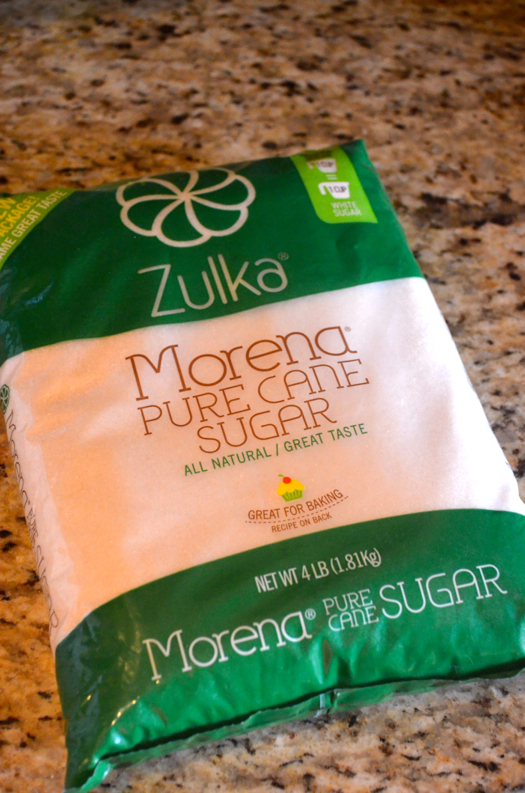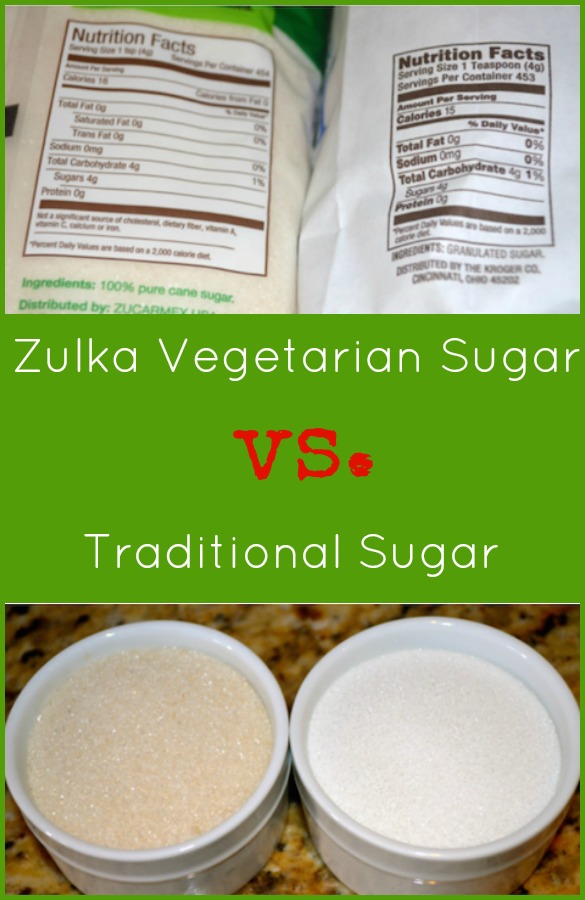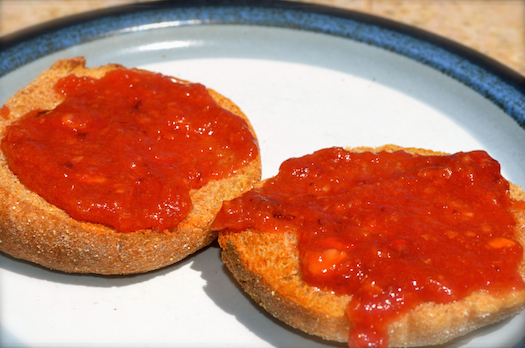Food Fight: Zulka Pure Cane Sugar vs. Store Brand White Sugar
In spite of living a plant-based lifestyle for more than seven years, I still find myself learning something new every day: that my vegetable soup wasn’t vegetarian, some beers and wines use fish bladders in the clarification process, and my baking sugar may contain pieces of incinerated animal bones.
That last one really creeped me out. It’s easy for me to steer clear of most animal products by reading ingredient labels and cross-checking with Barnivore, but sugar … well, it’s in everything, especially my kitchen, where I regularly churn out baked goods to satisfy my post-run cravings.
That said, I was relieved to hear true plant-based sugar options were available, because I was not going to give up my cupcakes.
To determine if a table sugar is veg-friendly, look for USDA Certified Organic options. Because the USDA does not recognize bone char as an organic ingredient, any sugar that uses it in the refining process cannot qualify for the certification.
One thing I’ve found about these organic sugars, however, is that they’re typically of the “raw” variety. The flavor is right, but the texture is usually way off. Raw sugars tend to be very coarse and grainy, leading to coarse and grainy products. Eew. Not as eew as bone char, but still … eew.
Luckily, though, I’ve found an acceptable sugar. Zulka is a minimally processed sugar that performs like the white sugar of old — without the bone char. It’s not an artificial sweetener like Splenda, nor a low-calorie substitute. It’s actual sugar, sourced and dried from from sugar cane. Bonus: Zulka is GMO-free, from a family-owned company focused on environmental sustainability, and can directly substitute white sugar cup-for-cup in recipes (unlike agave nectar or other substitutes, which require alteration).

My first test with Zulka sugar was a direct side-by-side comparison of Zulka to traditional table sugar from the store. Nutritionally, the two are almost identical. Visually, it’s pretty close. The Zulka is a bit darker and grainier than traditional sugar, which makes sense, given its minimal processing. When it comes to price, traditional sugar is a lot more economical — 99 cents for a four-pound bag, compared to Zulka’s $4 for two pounds.
Taste-wise, though, there’s no comparison. The Zulka wins. I’m not quite sure how to describe it other than Zulka has a deeper flavor that goes beyond “just sweet.” It doesn’t have the full-on molasses flavor of brown sugar, but it does have that same depth. You know what? Just take my word for it. It’s tasty stuff.

Next, I utilized both in a recipe for jam. I had a huge bounty of cherries and peaches during stone fruit season, and wanted to preserve them year-round. In the final product, the Zulka batch of jam, compared to the one made with traditional sugar, looked and tasted identical. The only difference I noticed during the cooking process was that Zulka took a little bit longer to dissolve.
The ultimate test for me, however, was in baked goods. Zulka claims to be “perfect for baking,” and they aren’t lying. A batch of maple-walnut cookies made with Zulka spread less than those made with traditional sugar. The Zulka cookies were more moist and tasted better than their competitor.
Zulka is a veg-friendly winner, and taking up residence in my kitchen pantry from now on. If you’re looking for a more natural product to stock in your pantry, give Zulka a try!
What ingredient swaps have you made in your kitchen lately? —Susan



Comments
I, too, have bought some Zulka sugar, but even tho’ they are GMO free, I cannot find anything, anywhere, that speaks to whether or not they use pesticides in their growing practices. I have looked all over their website and even called them. They couldn’t answer my question and told me to email customer service, which I did. The email came back as not deliverable. My suspicion is that if it were pesticide-free they would be tootin’ that horn all over their website. Any ideas on this issue?
Wow, that’s a good question. I would tend to agree with you — I’d imagine they would say it really clearly. I wonder if maybe shooting them a Tweet might be effective. But I don’t know the answer for sure. If you find out and care to come back and share, I’m sure we’d all love to hear it!
Thanks
You can get 8th bag of Zulka cane sugar for 5.38 at Walmart
I buy it all the time it always has pieces in it that is not sugar but looks like leaves or dirt. Can they not make a clean sugar at least I see the pieces but the product should be just sugar no extra particles in it.
Great article Susan. I only use Zulka sugar. It has a great taste and healthy as far sugars go. We’ve been purchasing it for a few years from the dollar tree. A two pound bag there cost one dollar, but it normally goes very quickly. Thanks for the information.
Comments are closed.